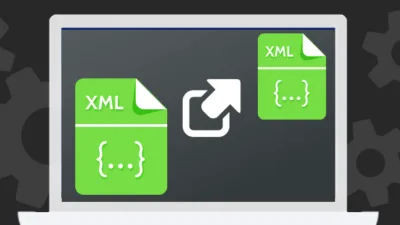With the launch of Magento 2.2 version, it introduced major change in terms of serialization. It introduces json serialization instead of regular one. There are many tables in database which includes several fields using serialized values, for example: catalogrules tables. While dealing with products, orders and customers in Magento 2.2, when the data is commanded to unserialize, it flashes an error named “Unable to Unserialize Value”.
 We were working on a client’s project and while adding products to cart, it showed the same error. The error is already available in Magento 2.2.X versions, you may get the same while dealing with order, product or customers data and voila, we nailed the solution for this “Unable to Unserialize Value” in Magento 2.2.
We were working on a client’s project and while adding products to cart, it showed the same error. The error is already available in Magento 2.2.X versions, you may get the same while dealing with order, product or customers data and voila, we nailed the solution for this “Unable to Unserialize Value” in Magento 2.2.
To solve this, go to \vendor\magento\framework\Serialize\Serializer\json.php and replace the below function in the file.
public function unserialize($string)
{
if($this->is_serialized($string))
{
$string = $this->serialize($string);
}
$result = json_decode($string, true);
if (json_last_error() !== JSON_ERROR_NONE) {
throw new \InvalidArgumentException('Unable to unserialize value.');
}
return $result;
}
function is_serialized($value, &$result = null)
{
// Bit of a give away this one
if (!is_string($value))
{
return false;
}
// Serialized false, return true. unserialize() returns false on an
// invalid string or it could return false if the string is serialized
// false, eliminate that possibility.
if ($value === 'b:0;')
{
$result = false;
return true;
}
$length = strlen($value);
$end = '';
switch ($value[0])
{
case 's':
if ($value[$length - 2] !== '"')
{
return false;
}
case 'b':
case 'i':
case 'd':
// This looks odd but it is quicker than isset()ing
$end .= ';';
case 'a':
case 'O':
$end .= '}';
if ($value[1] !== ':')
{
return false;
}
switch ($value[2])
{
case 0:
case 1:
case 2:
case 3:
case 4:
case 5:
case 6:
case 7:
case 8:
case 9:
break;
default:
return false;
}
case 'N':
$end .= ';';
if ($value[$length - 1] !== $end[0])
{
return false;
}
break;
default:
return false;
}
if (($result = @unserialize($value)) === false)
{
$result = null;
return false;
}
return true;
}
Implementing the above code will definitely unserialize the old values and serializes them back using Json. Let me know through commenting if you stuck somewhere and need help regarding this code. I’ll be glad to help.








AMAZING!
AMAZING!
Yes it is working for me. Thanks… But how can I override this file ?
This is not any magento extension file, so you can not override this file.
Yes it is working for me. Thanks… But how can I override this file ?
This is not any magento extension file, so you can not override this file.
it not working
it not working
Very helpful. Five Stars for this tip.
Thanks.
Very helpful. Five Stars for this tip.
Thanks.
Rather than rewriting core code, you should make this into a plugin that performs a before action on the unserialize function. You can intercept the string argument, check if it is sterilize, and convert it to the correct value type as needed. This would be the correct Magento 2 way of doing it.
Rather than rewriting core code, you should make this into a plugin that performs a before action on the unserialize function. You can intercept the string argument, check if it is sterilize, and convert it to the correct value type as needed. This would be the correct Magento 2 way of doing it.
The solution on my site works, thank you.
glad to know it helped you, keep reading our blogs! 🙂
The solution on my site works, thank you.
glad to know it helped you, keep reading our blogs! 🙂
Yes, This is working solution. Thank You.
Yes, We also can override this file. I have done same task with overriding this file in my custom module which is working in local and live as well.
Just put following line in di.xml inside etc directory
And inside NamespaceModuleNameSerializeSerializer Directory: file Json.php
is_serialized($string))
{
$string = $this->serialize($string);
}
$result = json_decode($string, true);
if (json_last_error() !== JSON_ERROR_NONE) {
throw new InvalidArgumentException(‘Unable to unserialize value.’);
}
return $result;
}
function is_serialized($value, &$result = null)
{
// Bit of a give away this one
if (!is_string($value))
{
return false;
}
// Serialized false, return true. unserialize() returns false on an
// invalid string or it could return false if the string is serialized
// false, eliminate that possibility.
if ($value === ‘b:0;’)
{
$result = false;
return true;
}
$length = strlen($value);
$end = ”;
switch ($value[0])
{
case ‘s’:
if ($value[$length – 2] !== ‘”‘)
{
return false;
}
case ‘b’:
case ‘i’:
case ‘d’:
// This looks odd but it is quicker than isset()ing
$end .= ‘;’;
case ‘a’:
case ‘O’:
$end .= ‘}’;
if ($value[1] !== ‘:’)
{
return false;
}
switch ($value[2])
{
case 0:
case 1:
case 2:
case 3:
case 4:
case 5:
case 6:
case 7:
case 8:
case 9:
break;
default:
return false;
}
case ‘N’:
$end .= ‘;’;
if ($value[$length – 1] !== $end[0])
{
return false;
}
break;
default:
return false;
}
if (($result = @unserialize($value)) === false)
{
$result = null;
return false;
}
return true;
}
}
Works perfectly
Yes, This is working solution. Thank You.
Yes, We also can override this file. I have done same task with overriding this file in my custom module which is working in local and live as well.
Just put following line in di.xml inside etc directory
And inside Namespace\ModuleName\Serialize\Serializer Directory: file Json.php
is_serialized($string))
{
$string = $this->serialize($string);
}
$result = json_decode($string, true);
if (json_last_error() !== JSON_ERROR_NONE) {
throw new \InvalidArgumentException(‘Unable to unserialize value.’);
}
return $result;
}
function is_serialized($value, &$result = null)
{
// Bit of a give away this one
if (!is_string($value))
{
return false;
}
// Serialized false, return true. unserialize() returns false on an
// invalid string or it could return false if the string is serialized
// false, eliminate that possibility.
if ($value === ‘b:0;’)
{
$result = false;
return true;
}
$length = strlen($value);
$end = ”;
switch ($value[0])
{
case ‘s’:
if ($value[$length – 2] !== ‘”‘)
{
return false;
}
case ‘b’:
case ‘i’:
case ‘d’:
// This looks odd but it is quicker than isset()ing
$end .= ‘;’;
case ‘a’:
case ‘O’:
$end .= ‘}’;
if ($value[1] !== ‘:’)
{
return false;
}
switch ($value[2])
{
case 0:
case 1:
case 2:
case 3:
case 4:
case 5:
case 6:
case 7:
case 8:
case 9:
break;
default:
return false;
}
case ‘N’:
$end .= ‘;’;
if ($value[$length – 1] !== $end[0])
{
return false;
}
break;
default:
return false;
}
if (($result = @unserialize($value)) === false)
{
$result = null;
return false;
}
return true;
}
}
Works perfectly
Worked on Magento 2.4.3